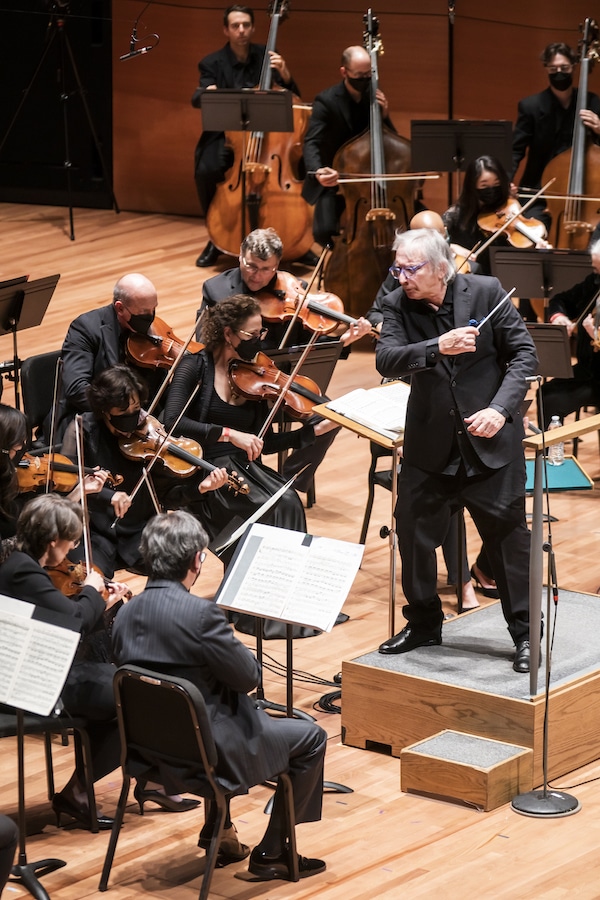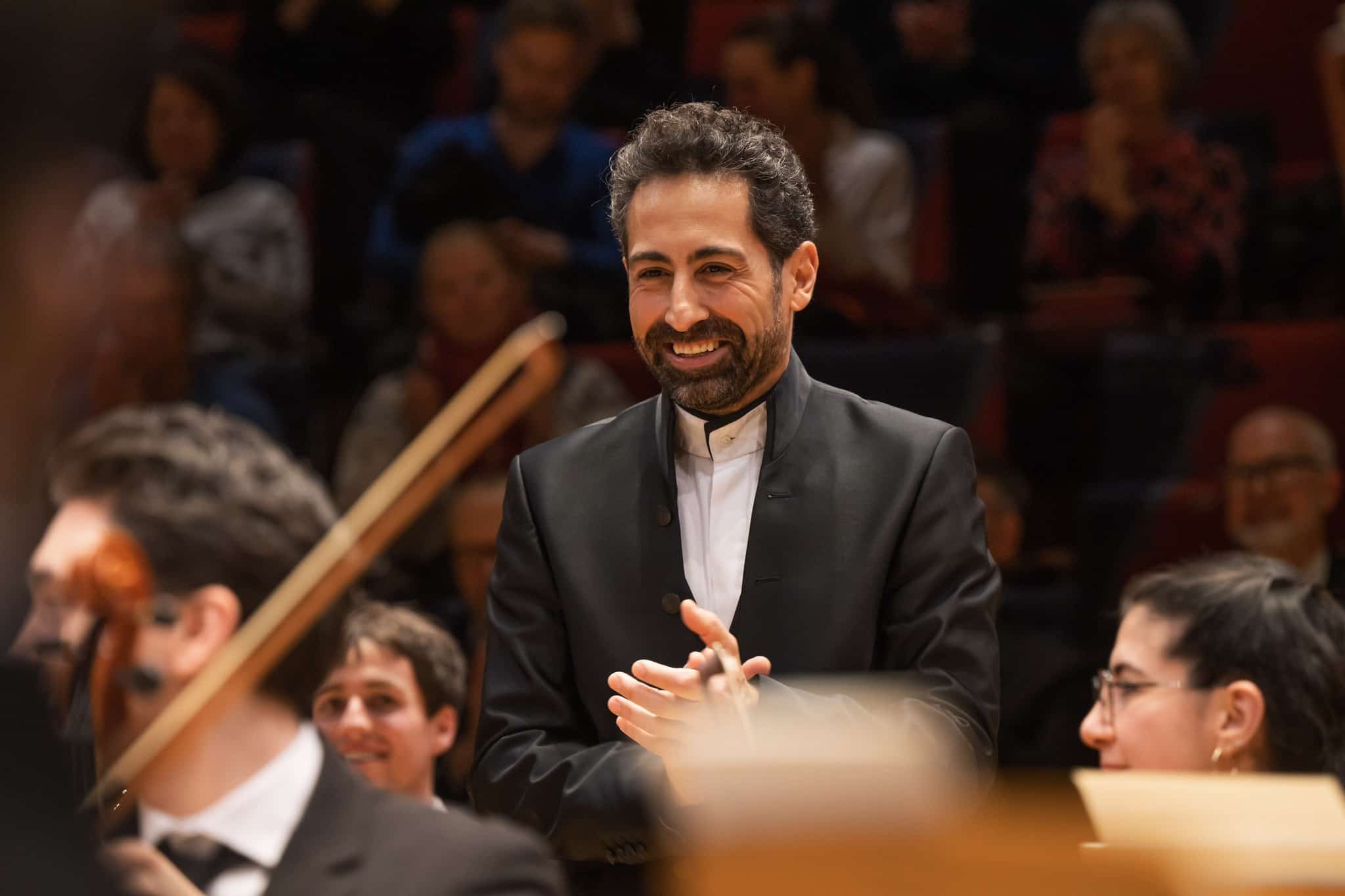Michael Tilson Thomas earns an intermission
NewsThe conductor, 76, returned to the podium Thursdy night after the removal of a brain tumour. He set the New York Philharmonic a testing programme and asked for no concessions – except one.
From New York Classical Review:
… Although the Philharmonic has been performing lately without intermissions, Tilson Thomas was understandably granted one before tackling the “Eroica.” It wasn’t long after the two opening chords rang out that one sensed that this performance was going to be about fierce energy channeled through precise rhythm, to exhilarating effect.
But one first had to get through a first movement that backslid in places. Conducting the opening pages with sweeping gestures, he let the pervasive long-short rhythm go out of focus at times, robbing the music of momentum. But other sections sparkled, and the brief fugato on the main theme never sounded wittier.
Read full article here.

photo: NYPO/Chris Lee






Great to see MTT back. I think, given the circumstances, the criticisms are petty and are not really worth reading. We should rejoice that this wonderful conductor and human being is back where he belongs.
I guess you could say a Wright makes two wrongs.
This was not done for MTT. The season started with no intermissions, but all the concerts going forward have intermissions.
Sorry, he looks terrible and that’s sad. He has been a great conductor. Take a rest, Maestro, no need to rush.
I was at the first concert and it was great. MTT looked disheveled but not frail. I saw old concerts with old conductors that were far less in shape.
I saw Eugene Ormandy’s final concert, which was at Carnegie Hall. The concertmaster had to give him a little shove so he could get up on the podium.
There’s a recent video of him on his twitter page where he looks better than those photos, but it still looks like he’s aged a few years in the last 12 months.
I really hope he’s not overdoing it.
*Thursday
This manner of concert review must be ancient.
The tone of it is like the word salad that Jack Benny would use when he wanted to appear to be making high-sounding but clueless musical commentary.
In the 1930s.
I’m sure he was imitating something people heard on the radio back then. But in 85 years no one has found a better way to talk about music.